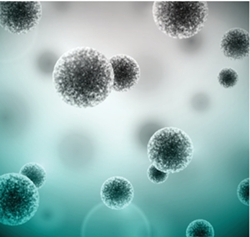 Everyone’s always on the lookout for a cure for cancer. And why wouldn’t you be? Cancer is one of the deadliest diseases in the world; according to the World Health Organization’s latest statistics, it causes almost eight million deaths worldwide.
Everyone’s always on the lookout for a cure for cancer. And why wouldn’t you be? Cancer is one of the deadliest diseases in the world; according to the World Health Organization’s latest statistics, it causes almost eight million deaths worldwide.
And while you might like to blame the highest rates of disease and death on genetics, you can’t, as a large portion of cancer deaths—about 30%—are caused by things we do to ourselves: things like a high body mass index, not eating enough fruits and vegetables, not exercising, drinking alcohol, and smoking.
Is there anything we can do to prevent cancer?
Researchers have long studied the effects of supplements on the rates of cancer. For example, a recent study involving over 7,000 women between the ages of 50 to 79 found that the risk of death from breast cancer was 30% lower for women taking a multivitamin and/or mineral supplement.
Why might supplements help prevent cancer? The researchers hypothesized that the nutrients helped protect the women’s immune system and aided in the absorption of free radicals, which decreased their mortality risk.
This isn’t the first study to examine the effects of supplements and cancer. One of the latest research developments is taking a closer look at the relationship between laetrile, also known as vitamin B17, and cancer. Laetrile is often called vitamin B17; however, it’s actually not a vitamin, but a synthetic substance made from the seed of fruits, most commonly apricots.
Laetrile was first promoted as an alternative cancer treatment in the 1970s, and gained prominence among people who said it cured cancer, or at the very least improved their energy levels and helped reduce some of the side effects of their conventional cancer treatments. But so far, science doesn’t back it up.
According to Cancer Research UK, there is no scientific evidence linking vitamin B17/laetrile and cancer; the claims about the benefits of vitamin B17 and cancer are not scientifically based, but anecdotal evidence. Is there any connection between vitamin B17 and cancer?
What You Need to Know About Vitamin B17 and Cancer
Researchers believe the main active ingredient in laetrile, called amygdalin, is responsible for its anti-cancer effects. In laboratory studies conducted on animals, laetrile was injected along with glucosidase enzymes, which caused amygdalin to release cyanide, killing the cancer cells.
This essentially destroyed the dangerous tumor cells and prevented them from growing or reproducing. Despite repeated attempts, researchers have not been able to replicate the results in other lab studies, so it looks like the connection between vitamin B17 and cancer is not very strong.
Furthermore, researchers believe that the results wouldn’t be the same in humans, since if cyanide is released, it could also damage the body’s healthy cells, causing more harm than good. This vitamin B17 and cancer treatment is controversial, and so far, there have been no randomized, controlled studies to study the connection between vitamin B17 and cancer.
The FDA banned laetrile as a cancer treatment in 1971, but amygdalin can still be purchased and the treatment is still offered by some clinics in Mexico.
Laetrile can also be found on the Internet as apricot kernels and naturally in the seeds of many fruits, like:
- Berries
- Grapes
- Bean sprouts
- Macadamia nuts and many more.
How to Use Vitamin B17 for Cancer Treatment
There are a few different ways to try this vitamin B17 as a potential cancer treatment: you can take laetrile as a tablet, apply it as a skin lotion, or inject it into your body. According to anecdotal evidence, fewer side effects occur when you inject laetrile intravenously.
The Dangers
As mentioned above, there’s a big problem in regards to vitamin B17 and cancer: laetrile contains cyanide, which is a poison. Researchers warn about using vitamin B17 for cancer treatment because the danger is that you would suffer from cyanide poisoning, which causes-
- Sickness and headaches
- Fever
- Dizziness, and potentially liver damage
- Blood pressure
- Nerve damage, and even death.
Cancer Research UK notes that eating 50 grams of laetrile, or about 50 apricot kernels, can be deadly.
If you’re taking laetrile tablets, you want to steer clear of foods that naturally contain amygdalin to avoid an accidental overdose—foods such as raw almonds, apricots, peaches, carrots, beans, flax seed, and nuts. If you just eat these foods on their own, however, the amount of amygdalin consumed is generally not enough to cause any damage.
The Benefits
Scientific evidence about vitamin B17 and cancer is scarce. According to alternative publications like NaturalNews.com, however, the substance in laetrile, amygdalin, can kill cancer cells. Their authors argue that there is a beneficial relationship between vitamin B17 and cancer—namely, that while amygdalin does contain poisonous cyanide, the cyanide never actually gets released.
They also argue that the enzyme rhodanese is able to bind to the cyanide, combine it with sulfur, and thus make it harmless in our bodies. The reason why amygdalin can kill cancer is because it also contains glucose, the molecules of which feed on cancer cells that have a taste for sugar.
Can Alternative Treatments Work?
There is a lack of evidence that using alternative treatments such as vitamin B17/laetrile can prevent cancer. Doctors will most likely tell you not to stop conventional treatments just because you believe it can cure cancer.
If you’re curious about vitamin B17 and cancer’s relationship and if laetrile can work for you, talk to your healthcare provider about this alternative treatment.
Also Read :
